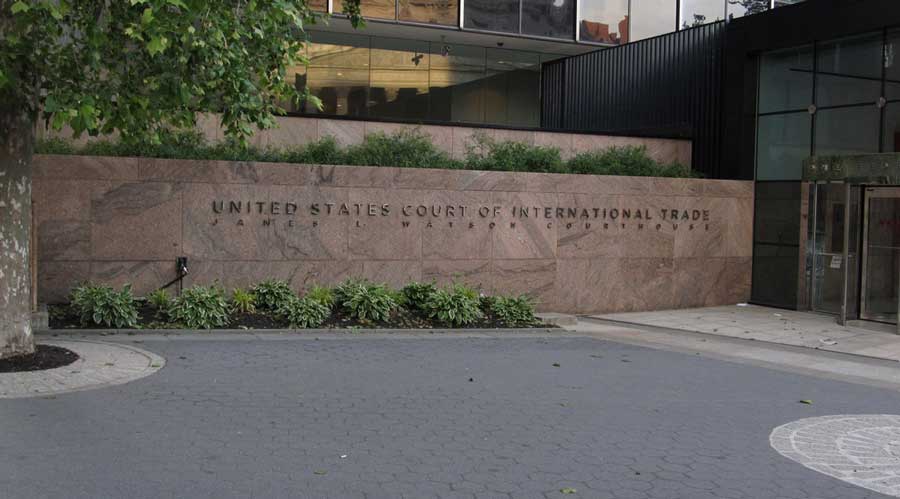The United States International Trade Commission (ITC) and the United States Trade Representative (USTR) have been in the news a lot the past few months regarding Apple and Samsung. While most know that Apple and Samsung have been fighting over patents, not everyone is familiar with the ways the ITC, USTR, and White House are getting involved, and why.
Why is this Going Through the ITC?
Companies seeking to enforce their patent rights can bring a case at the ITC, an independent federal agency, under Section 337 of the Tariff Act of 1930. Section 337 allows owners of U.S. intellectual property, like patents, to protect their products from unfairly competing imports. If a patent owner believes that an organization is importing a product into the United States which violates the owner’s patent rights, they can bring that infringer before the ITC.
One of the reasons to bring a case at the ITC is its power to issue an import and sales ban against companies found infringing on a patent. This remedy also allows patent owners to bring actions against defendants located in foreign countries, since the U.S. does not have reciprocal agreements for the recognition of patents, and the ITC’s jurisdiction is over products not parties.
Apple v. Samsung and Samsung v. Apple
Apple and Samsung have recently brought suits against each other for products they claim infringe on their patents. In Apple’s suit against Samsung, the ITC recently ruled some of Samsung’s older Android devices violated two of Apple’s patents and issued a ban on importation and sale of those devices in the U.S.
In Samsung’s suit against Apple, Apple had argued that Samsung had committed to license the patents at issue as “standard essential patents” (SEPs) and had failed to do so. However, the ITC ruled some of Apple’s older iPads and iPhone violated Samsung’s patents and issued a ban on the importation and sale of those devices.
Under Section 337, the President has 60 days to review and, for policy reasons, decide not to enforce the ITC’s decision. The President has delegated that review process to the USTR Ambassador. On August 3, 2013, USTR Ambassador determined that it was in the public interest to not enforce the ITC’s decision to ban certain Apple products. The decision stated that Samsung may still be entitled to a remedy and may continue to pursue its rights through the courts.
However, the USTR did not find the same policy reasons to overturn the ban on Samsung products. On October 8, 2013, the USTR declined to overturn the ITC’s ban on Samsung’s products it found infringed on Apple’s patents. Apple is current filing an appeal at the ITC to broaden the import ban against Samsung.
Why Should You Care
While this debate looks like two large companies battling it out, the consequences of the decisions of the ITC and the USTR have real effects on developers and consumers alike.
Samsung’s suit against Apple raised the issue of SEPs, which is a critical way of standardizing technology. Standards allow developers to build products and adopt new platforms without the uncertainty of interoperability and at a lower cost. Standards bridge barriers to entry, and allow developers to concentrate resources on a specific product and rely on standards to provide the key underpinnings. Standards ensure that developers have a simple way of building programs and apps that can reach the widest audience.
ACT is supportive of intellectual property rights, as they are essential for app developers. Samsung committed its patents to the standard and agreed to license them under fair, reasonable, and non-discriminatory (FRAND) licensing terms. Having done so, Samsung cannot come back now and try to get products that rely on that standard banned.
We appreciate that the USTR recognized the importance of preserving the reasoning behind SEPs and overturned the ITC’s ban. Standards have become a key part in the phenomenal growth in mobile technology; technology which has allowed the app market to grow to a $25 billion industry.
Apple’s claims against Samsung did not involve SEPs but we continue to monitor Apple’s appeal to the ITC to ensure it does not adversely affect app developers. We will endeavor to keep you updated on all actions which could have an effect on your businesses.
